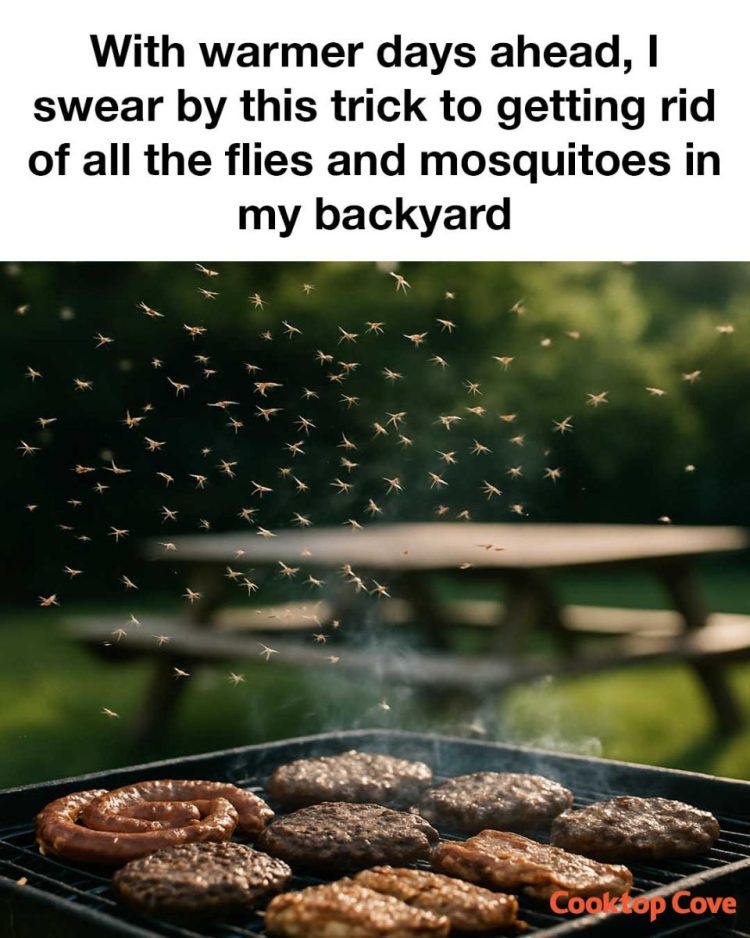4. Reapply as needed: For best results, reapply the spray every couple of hours, especially if you’re spending extended time outdoors.
6. How to Create a Mosquito-Free Zone with Natural Ingredients
Creating a mosquito-free zone involves more than just repelling them; it’s about making your backyard less attractive to them. Start by eliminating standing water, which is where mosquitoes breed. Check gutters, planters, and any other containers that may collect water.
Plant mosquito-repelling plants such as marigolds, lavender, and basil around your yard. These plants naturally emit scents that mosquitoes dislike. Additionally, consider using citronella candles or torches to create a barrier around seating areas.
7. The Role of Essential Oils in Insect Repellents
Essential oils play a crucial role in natural insect repellents due to their potent fragrances and chemical properties. Citronella oil, derived from lemongrass, is one of the most effective natural mosquito repellents. Studies have shown that it can provide protection for up to two hours when applied to the skin.
Eucalyptus oil contains compounds like eucalyptol, which have been proven to repel mosquitoes. Similarly, lavender oil not only repels insects but also has a calming effect, making it a great addition to any repellent blend.
8. DIY Solutions: Homemade Traps and Repellents
Homemade traps can be an effective way to reduce the number of flies and mosquitoes in your backyard. For flies, create a simple trap using a jar filled with apple cider vinegar and a few drops of dish soap. The vinegar attracts the flies, while the soap breaks the surface tension, causing them to drown.
For mosquitoes, consider making a sugar and yeast trap. Mix 1 cup of sugar with 1 cup of water and add a packet of yeast. Pour the mixture into a bottle with the top cut off and inverted to create a funnel. The carbon dioxide produced by the yeast attracts mosquitoes, trapping them inside.
9. The Importance of Regular Maintenance and Cleanliness
Keeping your backyard clean and well-maintained is essential for preventing insect infestations. Regularly mow the lawn and trim bushes to reduce hiding spots for mosquitoes. Remove any debris or clutter that can collect water or provide shelter for insects.
Ensure that trash bins are sealed and emptied regularly to prevent attracting flies. By maintaining a tidy outdoor space, you can significantly reduce the likelihood of insects taking over your backyard.
10. How to Use Plants to Deter Unwanted Pests
Certain plants have natural insect-repelling properties that can help keep your backyard bug-free. Planting herbs like basil, mint, and rosemary can deter mosquitoes and flies, as they dislike the strong scents these plants emit.
Marigolds are another excellent choice, as they contain pyrethrum, a compound used in many insect repellents. Plant them around the perimeter of your yard or near seating areas to create a natural barrier against pests.
11. Evaluating the Effectiveness of Different Methods
When evaluating the effectiveness of different insect repellent methods, it’s important to consider factors such as the severity of the insect problem, environmental conditions, and personal preferences. While natural methods may be sufficient for mild infestations, more severe cases may require a combination of approaches.It’s also essential to test different methods to see what works best for your specific situation. Keep in mind that what works for one person may not work for another, so be open to experimenting with various solutions until you find the one that effectively keeps your backyard free of flies and mosquitoes.

With warmer days ahead, I swear by this trick to getting rid of all the flies and mosquitoes in my backyard
ADVERTISEMENT
For Complete Cooking STEPS Please Head On Over To Next Page Or Open button (>) and don’t forget to SHARE with your Facebook friends
ADVERTISEMENT